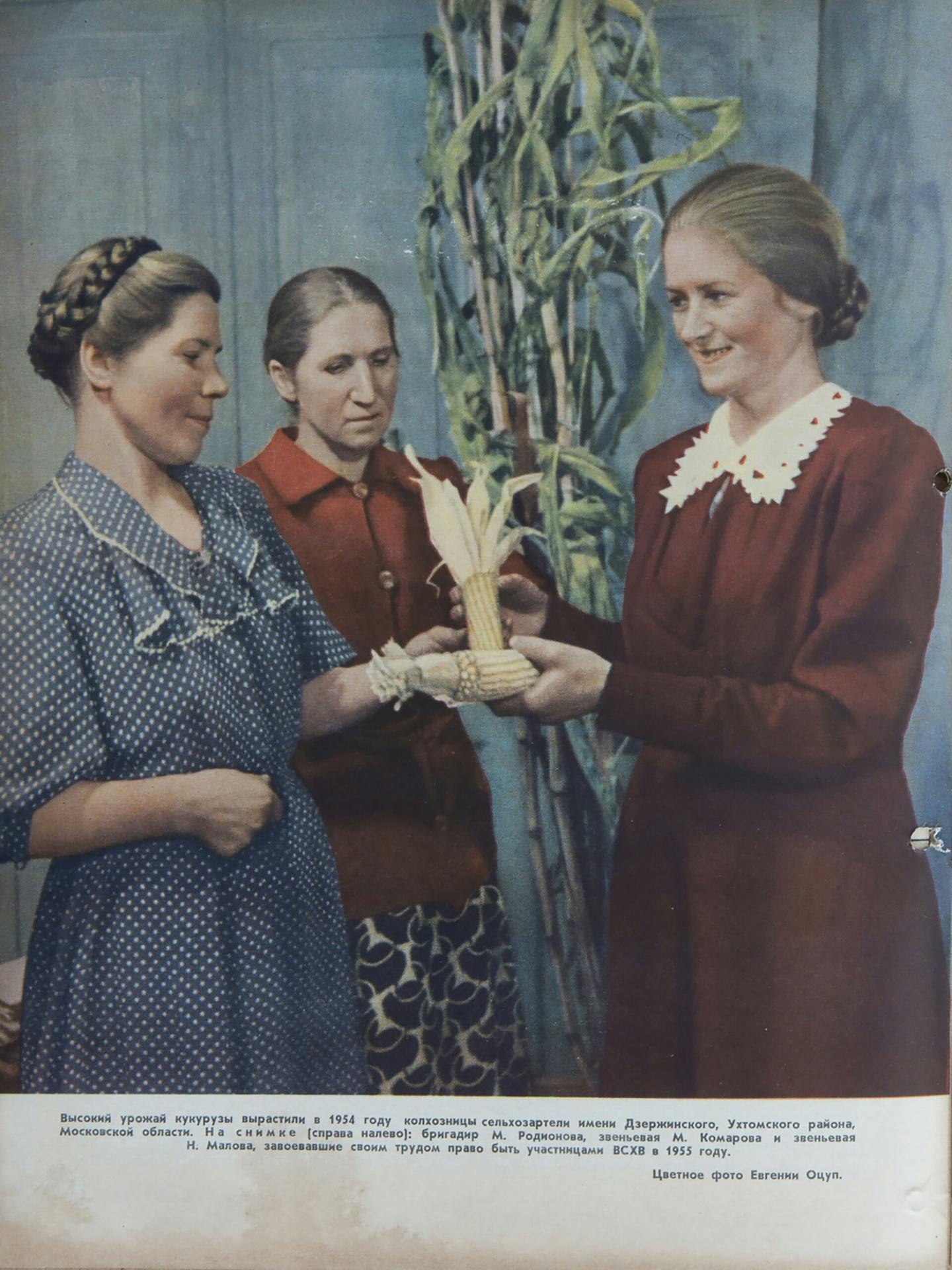Olga Grotova is an artist, poet and activist living and working in London. Her practice involves collecting and mapping stories of Soviet and Eastern-European women that have been erased from established historical narratives. Grotova undertakes research journeys to discover the lost histories of communities and families from former Soviet states in order to dispel male-dominated and power-centric ‘official’ narratives. Her practice is a feminist interruption into the Russian political narrative plagued by extraction, patriarchy and imperialism.
Olga Grotova and Griselda Pollock in conversation
May 2023
Current artist-in-residence Olga Grotova was joined by renowned feminist art historian Griselda Pollock, in a discussion that centred on Grotova's practice-based research project, The Friendship Garden.
Grotova and Pollock discussed the power of art, specifically film and painting, as mediums to examine historical and intergenerational trauma.
Through the lens of Pollock's work on concentrationism, affect and the aesthetics of resistance, they discussed the need for art that disturbs and interrupts dominant narratives, brings to light forgotten and obscured histories and that shakes or shocks us into action.
This event formed part of the public programme for Grotova’s ongoing research project The Friendship Garden.
The Friendship Garden explores the land cultivation practices of Soviet women and female resistance to the authoritarian state. Whilst women and marginalised people still have to carve out spaces for themselves, gardens serve not only as a metaphor but as a powerful tool to express oneself and thrive.
Griselda Pollock is Professor emerita of Social and Critical Histories of Art at the University of Leeds. For her work as a feminist art historian and cultural theorist she was awarded the Holberg Prize in 2020. Recent Publications: After-Image/After-Affect: Trauma and Aesthetic Transformation (2013), Charlotte Salomon in the Theatre of Memory (2018), edited with Max Silverman, Concentrationary Imaginaries: Tracing Totalitarian Violence on Popular Culture (2015), Concentrationary Art; Jean Cayrol, The Lazarean and the Everyday in Post-War Literature, Music and the Visual Arts (2019).
Filmed by Chanthila Phaophanit @chantss_p
Editing by William Glass @william.t.glass

